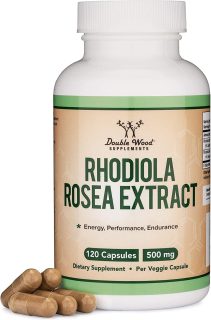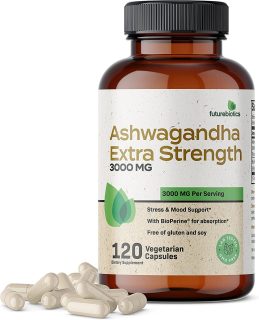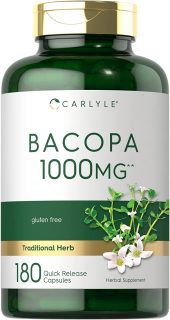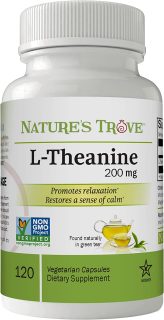According to a report from Gallup, four in 10 adults worldwide admit that they experience a lot of worry or stress. With us reeling from the pandemic, dealing with smokey evidence of the climate crisis and the general state of things, it’s no wonder that we’re all stressed out.
So, how to deal with it?
Well, managing our stress levels can sound like a tedious and overwhelming task. That said, if we want to do so effectively, then we may need to turn our attention to managing our cortisol levels instead.
What is cortisol?
Cortisol is a hormone produced in the body that is released during the body’s fight or flight response. As it’s released when you’re in a stressful situation, cortisol is known as the “stress hormone”.
The purpose of cortisol is to help your body deal with stress. Now while the body does have a use for cortisol, if it’s too high for a prolonged period, then this can be detrimental to the body. Studies show that prolonged moderate to high levels of cortisol can increase the risk of various health issues. These include, but are not limited to:
- Heart Disease
- Anxiety
- depression
- a weakened immune system
- insomnia
- diabetes
- poor digestive health
- weight gain
So what causes high cortisol levels?
Factors that can cause prolonged high cortisol levels include:
- chronic stress
- poor sleep
- over-exercising
- poor diet
- chronic inflammation
- Overconsumption of caffeine and other stimulants
Because high levels of cortisol can be detrimental to the body, it’s important to find ways in which to manage these levels. One suggested method is the use of supplements.
4 Supplements to Lower Cortisol Levels
1. Artic Root
More commonly known as Rhodiola rosea, artic root is a traditional Chinese medicine herb whose benefits are known to improve cognitive function. Additionally, it’s also been found to ease stress levels by reducing elevated cortisol levels.
According to a study published last year, Rhodiola rosea reduced cortisol response to awakening stress in patients dealing with burnout.

Double Wood Rhodiola Rosea Supplement
2. Ashwagandha
A plant that prominently features in Ayurvedic medicine, Ashwagandha is an adaptogen. Adaptogens are compounds that are designed to help the body deal with stress, with one study showing that Ashwagandha improved one’s quality of life by bettering their resistance ability towards stress.
In terms of cortisol control, a study published last year in the Journal of Ayurveda and Integrative Medicine found an association between a month’s supplementation of Ashwagandha (225 mg/day and 400 mg/day) and participants’ cortisol levels, cognitive ability, and self-reported stress, anxiety, depression, and food cravings.
Futurebiotics Ashwagandha Capsules
3. Bacopa
An ancient Indian herb, Bacopa that’s more famous for its nootropic properties rather than its adaptogenic ones. Nootropics are cognitive enhancers, derived from plants or isolated amino acids, and may also help to reduce the risk of age-related brain decline.
Bacon has been found to improve memory, attention, and focus, and it may also help manage heightened cortisol levels, with a 2021 study suggesting that bacopa may reduce the body’s cortisol awakening response.
Carlyle Bacopa Monnieri Capsules
4. L-theanine
An amino acid found in green, black, and white tea, L-theanine not only promotes mental awareness but may also help alleviate stress by managing cortisol levels.
Per one study published in Nutrients, an L-theanine-based drink had anti-stress effects on a group of participants, with the drink reducing cortisol levels compared to the placebo group.
Nature’s Trove L-Theanine
How else can I lower cortisol levels?
If you’re not a fan of supplements but are worried about your cortisol levels, then you can try one of the following techniques:
- Manage your stress levels: deep breathing, social media breaks, yoga, and strong social ties.
- Get quality sleep: avoid screens before bed, no caffeine after 2 pm, stick to a schedule, make your bedroom a sleep haven and try meditation before bed.
- Eat a healthy diet: no processed foods or refined grains, more veggies and fruit, enjoy legumes, drink more water, and cut back, or quit alcohol.
- Exercise: Gardening, dancing, completing household chores, and power walking are great and fun ways to stay active.
Conclusion
Yes, the body does need cortisol, but chronic stress can be dangerous for the body, so it’s important to manage your cortisol levels.
While we always advise that you speak to your doctor before taking any new supplements, by using them in conjunction with lifestyle practices like getting enough sleep and exercising regularly, the right supplements can help to lower cortisol levels, manage chronic stress and protect your health.
References
Chandrasekhar, K., Kapoor, J., & Anishetty, S. (2012). A prospective, randomized double-blind, placebo-controlled study of safety and efficacy of a high-concentration full-spectrum extract of ashwagandha root in reducing stress and anxiety in adults. Indian journal of psychological medicine, 34(3), 255–262. https://doi.org/10.4103/0253-7176.106022
Ivanova Stojcheva, E., & Quintela, J. C. (2022). The Effectiveness of Rhodiola rosea L. Preparations in Alleviating Various Aspects of Life-Stress Symptoms and Stress-Induced Conditions-Encouraging Clinical Evidence. Molecules (Basel, Switzerland), 27(12), 3902. https://doi.org/10.3390/molecules27123902
Kingsley M. (2006). Effects of phosphatidylserine supplementation on exercising humans. Sports medicine (Auckland, N.Z.), 36(8), 657–669. https://doi.org/10.2165/00007256-200636080-00003
Lopresti, A.L., Smith, S.J., Ali, S., Metse, A.P., Kalns, J. and Drummond, P.D. (2021). Effects of a Bacopa monnieri extract (Bacognize®) on stress, fatigue, quality of life and sleep in adults with self-reported poor sleep: A randomised, double-blind, placebo-controlled study. Journal of Functional Foods, 85, p.104671. doi:https://doi.org/10.1016/j.jff.2021.104671.
Remenapp, A., Coyle, K., Orange, T., Lynch, T., Hooper, D., Hooper, S., Conway, K., & Hausenblas, H. A. (2022). Efficacy of Withania somnifera supplementation on adult’s cognition and mood. Journal of Ayurveda and integrative medicine, 13(2), 100510. https://doi.org/10.1016/j.jaim.2021.08.003
White, D., de Klerk, S., Woods, W., Gondalia, S., Noonan, C. and Scholey, A. (2016). Anti-Stress, Behavioural and Magnetoencephalography Effects of an l-Theanine-Based Nutrient Drink: A Randomised, Double-Blind, Placebo-Controlled, Crossover Trial. Nutrients, [online] 8(1), p.53. doi:https://doi.org/10.3390/nu8010053.






![women [longevity live]](https://longevitylive.com/wp-content/uploads/2020/01/photo-of-women-walking-down-the-street-1116984-100x100.jpg)










